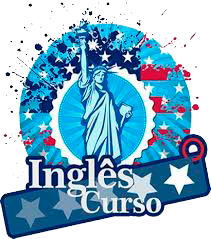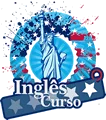Adjetivos que Causam Confusão
Existem muitos adjetivos que podem ser confundidos quando de seu uso. Vejamos:
•Old – Young: para pessoas
◦He is an old man.
◦Girls and young women are now the most prolific web users.
•Old – New: para coisas. Podemos usar new para uma pessoa que chegou recentemente em um lugar (new-boss, new secretary)
◦This is my old chair.
◦Yesterday I bought a new shoes.
•Tall – Short: usado para qualificar a altura de pessoas
◦Fashion footwear and clothing for tall girls.
◦Tall parents tend to have tall children, and short parents tend to have short children.
•Tall – Small: também usamos tall para construções (buildings), árvores (trees), montanhas (mountains), mas para o oposto usamos small e não short.
◦How tall does a mountain have to be to be called a mountain?
◦These small trees provide colorful flowers, fruit and foliage.
•High – Low: para construções (buildings) e coisas. Para mountains usa-se high e para hill usa-se low. Também podemos usar high e low para sons (sounds).
◦The peek called Aconcagua in Argentina is 22834 feet high.
◦The low hill and mountain region may easily be subdivided.
◦How can I change my voice from low to high?
•Long – Short: para comprimento (length), tempo (time) e distância (distance)
◦For long distance rail travel, discount tickets are available.
◦The time is short.
•Loud – Soft e Hard – Soft: hard e soft também se aplicam a texturas
◦Some people tolerate and even enjoy dangerously loud sounds.
◦A dry medium bodied merlot with plums, soft berries, raisins and vegetal aromas.
•Fat – Thin: para pessoas e animais
◦This is a fat cat who looks unhealthly.
◦My child is very thin.
•Thick – Thin: normalmente aplicado a coisas
◦My husband likes thick and soft chocolate chip cookies.
◦Scientists create thin, flexible, biodegradable battery.
•Fat: pode ser usado somente com alguns nomes de coisas
◦Make an entire fat book or just a few fat book pages using these tips.
◦It’s time to enjoy retirement, even without a fat bank account.
•Thick: pode-se usar no sentido de estúpido para pessoas
◦You are a thick boy.
•Large – Big – Great: para pessoas e coisas. Large e Big geralmente se refere a tamanho (size) e great geralmente se refere a importância (importance)
◦Large box is ideal for bulky items such as linens and pillows.
◦What a great idea!
•Small – Little: Small é o oposto de large e big. Normalmente se usa na função atributiva ou predicativa.
◦My car is very small. (predicativa)
◦I would like to buy a small car. (atributiva)
•Small – Little: Little é normalmente usado na função atributiva e pode substituir small em muitos contextos (a little girl, a little car). Também é usado para quantidades (a little sugar).
◦My little house needs paint.
◦My little girl was One and half when I bought this sweet little house for her.








